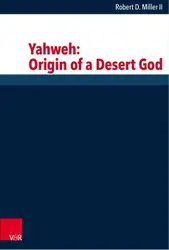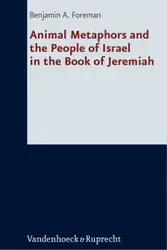Ekaterin Matusova offers a new approach to the old problems of interpretation of the "Letter of Aristeas".Chapter 1 deals with the question of the structure of the narrative. Matusova argues that at the time of Aristeas compositions of the kind of the Reworked Pentateuch, or Rewritten Bible were circulating in Egypt in parallel with the LXX and were a source of interpretations of the Hebrew text different from the LXX and of specific combinations of subjects popular in Second Temple Judaism. In particular, Matusova further argues that the leading principle of the composition of the Letter is that of the Reworked Deuteronomy, where subjects referring to the idea of following the Law among the gentiles were grouped together. The analysis is based on a broad circle of Jewish sources, including Philo of Alexandria and documents from the Qumran library. The principle of the composition discovered in this part of the study is referred to as the Jewish paradigm.Chapter 2 offers a new interpretation of the frame story in the narrative, i.e. of the story of the translation in the strict sense. Matusova shows that two paradigms are skilfully combined in this split story: the Jewish one, based on the Bible, and the Greek one, which involves Greek grammatical theory. She further argues that the story, when read in terms of Greek grammar, turns out to be a consistent story not of the translation, but of the correction of the LXX, which is important for our understanding of the early history of the translation. The analysis involves extensive excurses into Greek grammatical theory, including a discussion of Aristotle, Dionysius Thrax and other Hellenistic grammarians.In Chapter 3 Matusova tries to find the reason for the combination of these two paradigms, namely the Jewish biblical paradigm and the Greek grammatical ones, and to interpret their interconnected meaning, by placing it in the broad historical context of the Ptolemaic state

Creation, Nature and Hope in 4 Ezra
Jonathan A. Moo
book
The Hebrew Bible in Light of the Dead Sea Scrolls
book
Christ Identity : A Social-Scientific Reading of Philippians 2.5-11
Sergio Rosell Nebreda
book
"Who is like Yahweh?" : A Study of Divine Metaphors in the Book of Micah
Juan Cruz
book
Writing a Commentary on Leviticus : Hermeneutics – Methodology – Themes
book
Imperial Visions : The Prophet and the Book of Isaiah in an Age of Empires
book
The Synagogue in Ancient Palestine: Current Issues and Emerging Trends
book
Yahweh: Origin of a Desert God
Robert D. Miller Miller
book
Like Mount Zion : Conceptual Metaphor and Critical Spatiality in the Songs of Ascents
Wen-Pin Leow
book
How Prophecy Works : A Study of the Semantic Field of נביא and a Close Reading of Jeremiah 1:4–19, 23:9–40 and 27:1–28:17
William L. Kelly
book
Animal Metaphors and the People of Israel in the Book of Jeremiah
Benjamin Foreman
book
